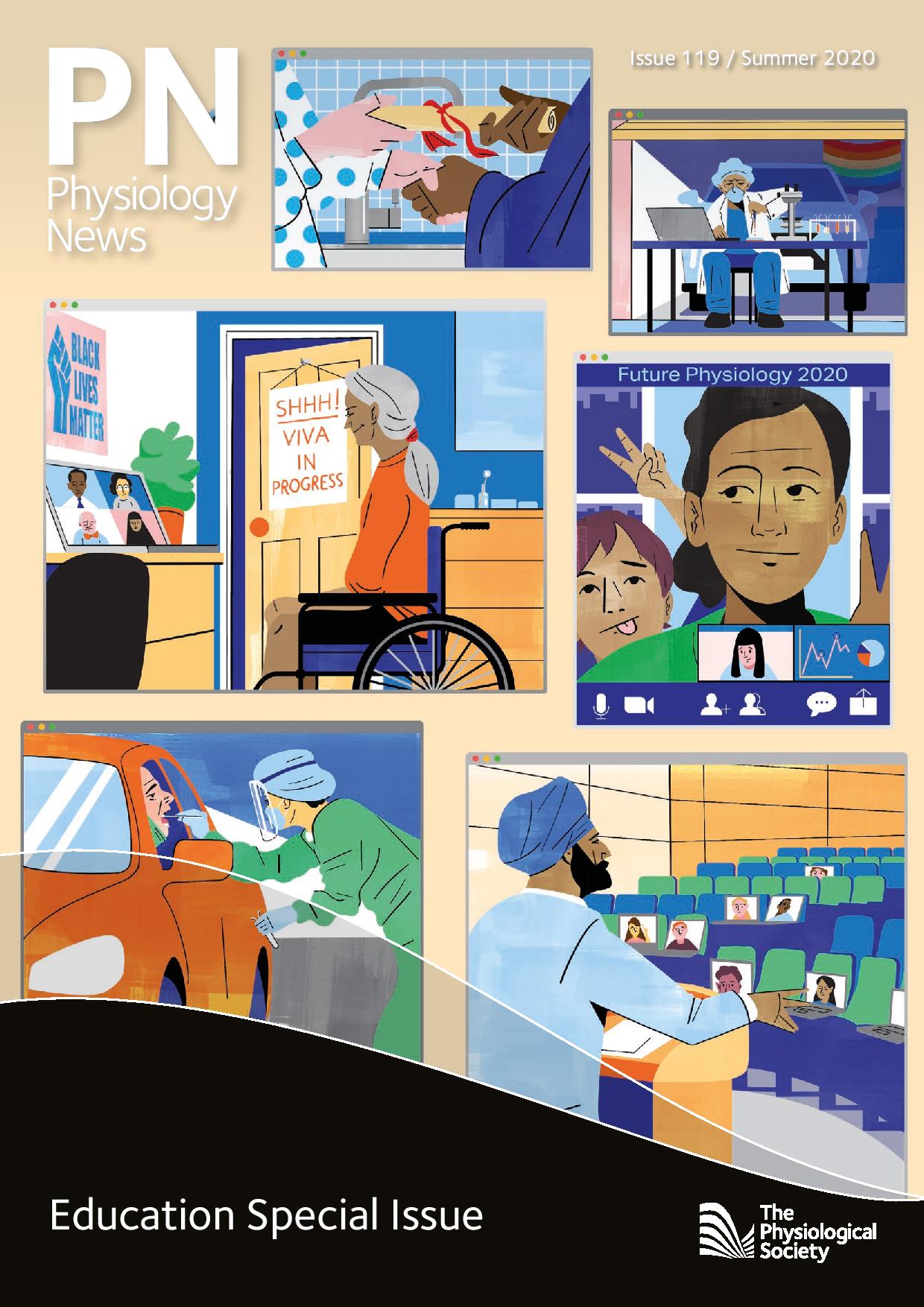
Physiology News Magazine
Supporting clinicians on the frontline to save lives
Letters to the Editor
Supporting clinicians on the frontline to save lives
Letters to the Editor
Mike Tipton, Editor-in-Chief of Experimental Physiology, University of Portsmouth, UK
David Paterson, President-Elect of The Physiological Society, University of Oxford, UK
Andrew Mackenzie, Head of Policy and Communications, The Physiological Society, UK
https://doi.org/10.36866/pn.119.7
In the space of less than six months, the Covid-19 pandemic has caused an unprecedented global health and economic crisis. As of time of writing (July 2020) there have been over 12 million cases worldwide and over half a million deaths. The Director-General of the World Health Organisation, Dr Tedros Adhanom Ghebreyesus, has said that “The worst is yet to come.”
It is clear that the only route out of this crisis is through scientific research. Whether finding better pharmacological treatments or pursuing a race for a vaccine, the eyes of the world are on researchers to provide answers.
Physiology has been at the forefront of this search for answers. When Covid-19 patients started appearing in emergency departments, they didn’t respond to standard treatment regimes. Medicine had to go back to first principles and understand systems physiology at work.
The result of greater physiological insight has changed how Covid-19 patients are treated. From how ventilators are deployed through to what medications are used, improved physiological knowledge is saving lives.
While initially Covid-19 was viewed as primarily a respiratory illness, we now know that this is only one facet of the disease, in addition to thrombosis and the cytokine storm.
Our improved understanding of the impact of Covid-19 on our bodies has enabled clinicians to change their approach to treatment, such as no longer rushing to put patients on ventilators and instead placing patients in the prone position to improve gas exchange. Greater insight into the immune response helps explain why dexamethasone has been hailed as a ‘ground-breaking treatment’ for hospital patients seriously ill with Covid-19.
In this time of crisis it is more important than ever for the scientific community to come together.
Back at the end of March we began discussing how academic physiologists like us could best help clinicians on the frontline. Clinicians were working tirelessly night and day to keep people alive and simply did not have the time to analyse the mountains of data coming through from patients.
Following discussions with our friend and colleague Professor Hugh Montgomery, Consultant Physician, The Physiological Society partnered with the Intensive Care Society to establish a Covid-19 Advisory Panel. The driving force for this initiative was to enable researchers to provide the ‘operational support’ to the medics dealing with patients, and to ensure they benefited from the latest thinking and analysis. Within hours the staff of The Physiological Society had got things up and running and within 48 hours, 26 expert physiologists from around the world had answered our call.
The aim of this group was to support frontline clinicians in the fight against Covid-19 by providing insight into the fast evolving understanding of the physiological and pathophysiological processes underpinning the disease. Our physiology colleagues were determined to help, and we would like to thank them for their time and support during what was a difficult and uncertain period.
By establishing a ‘question and answer’ system on The Physiological Society website, we enabled clinicians to send questions into the group for consideration. Within 24 hours we aimed to have an evidence-based response prepared for online posting. This helped improve the clinical understanding of the disease and inform best practice.
The question areas covered the whole array of physiological systems, including queries on abnormal coagulation, renal failure, hypertension, cardiac troponins and PPE. [would provide web link to questions here]
While in recent years the discipline of physiology has suffered from somewhat of a crisis of identity, when confronted with an unknown, new disease, the value of physiological research is clear. The expert insight physiologists rapidly provided in this crisis saved lives.
The Physiological Society, and all of us in the physiology community, first and foremost must now act to ensure the physiological lessons from this disease are learned so we are more prepared for the next challenge. There is still much we don’t know.
We must also learn the broader structural lessons about the deep, inextricable connection between physiology and medicine, and the importance of a rapid response in a dynamically evolving crisis. Physiology gives clinicians the toolkit to deal with the unknown. By working with clinical partners we should cement the closer links between our communities we have established during last few months so we are collaborating and ready to respond, because in this new normal of uncertainty, one truth is certain: this will not be the last pandemic.
